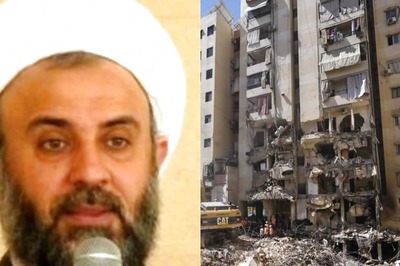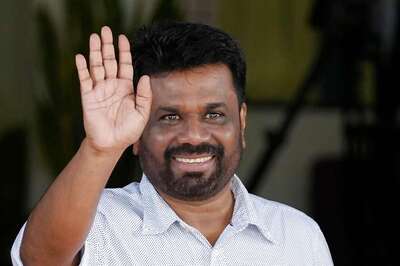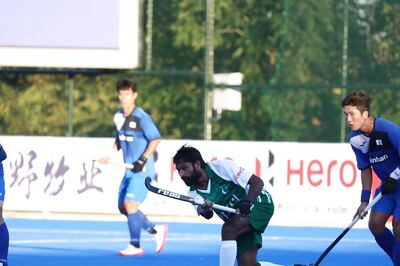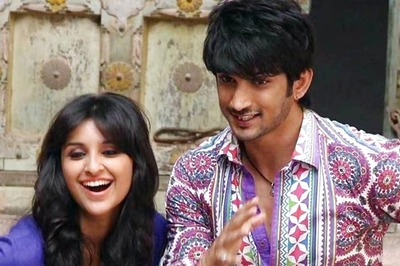
views
National security and nationalism have been the chief talking points of the Bharatiya Janata Party’s ongoing poll campaign. The Pulwama terror attack and India’s retaliatory air strike against Pakistan have been dredged up by Prime Minister Narendra Modi and other BJP leaders at every election rally to drive home the point that India needs a strong, decisive leader at the helm to protect the country from the ugly and widespread scourge of terrorism as also to put Pakistan in its place.
With terror as the centrepiece of the BJP’s campaign, it was not surprising that the Easter Sunday blasts in Sri Lanka grabbed Modi’s attention. Barely a day after tragedy struck the neighbouring island nation, the Prime Minister referred to the attack in his election speech to urge people to vote for the BJP as a vote for the lotus would give him the strength to fight against terror.
The reference to the Sri Lanka blasts came up once again when Modi addressed party workers and leading citizens in his Lok Sabha constituency Varanasi after a mega road show last Thursday. However, there was a subtle shift in his argument this time around. Though he did not let up on the lurking dangers of terrorism, Modi linked such acts of carnage and bloodshed to development.
The brunt of his argument was that prosperity and development would be rendered meaningless if the citizens of a country were not secure. “You may have a car, a bungalow and everything else but if you cannot return home safely in the evening, what is the use,” Modi told his audience while emphasising that security is essential for development. With the Prime Minister providing the necessary cue, this line of argument is bound to be picked up by the other party leaders on the campaign trail in the coming days.
From all accounts, this minor but unmistakable change in Modi’s “nationalism security” pitch is a response to his critics and political opponents who never tire of telling the electorate that the Prime Minister and the BJP were deliberately focusing on the Pulwama attack and the Balakot air strike to deflect attention from livelihood issues such as the agrarian crisis, rising unemployment, the ailing economy, the ill-effects of demonetisation and the haphazard implementation of GST.
The opposition has consistently pointed out that Modi and other BJP leaders were essentially using nationalism as a fig leaf because their government had failed to deliver on its 2014 election promise of ushering in “achhe din.”
Three phases of elections are now over and the feedback received from the field suggests that the Opposition’s argument has found resonance with a large section of rural voters and small businessmen who have been feeling the pinch of the Modi government’s economic policies.
Reports from the states which have voted so far suggest that though the saffron party’s nationalist agenda, with an underpinning of Hindutva, and Modi’s charisma have undoubtedly made an impact, especially with the urban middle classes, the rural masses are more concerned about bread-and-butter issues.
This is particularly so in the politically crucial state of Uttar Pradesh where the mahagathbandhan forged by the Samajwadi Party, Bahujan Samaj Party and Rashtriya Lok Dal has succeeded in keeping the focus on matters of local concern such as the cattle menace and the poor returns on farm produce. This election pitch has been further strengthened by the caste combination of Dalits, Yadavs, Muslims, and Jats, woven together by these regional parties. This is clearly proving to be a roadblock for the BJP which has been stalled from running away with its nationalist agenda.
As the Lok Sabha election enters a crucial phase, BJP strategists clearly felt compelled to tweak their campaign to address the criticism that their party is focusing on national security and nationalism while overlooking the all-important issue of development which touches everyone’s lives.
This would explain why Modi chose to vary his narrative in Varanasi to point out that “security and economy” are interlinked. The shift was not substantial enough to take away from the party’s main position but, at the same time, a new element was introduced in the ongoing political discourse.
This is also an attempt by Modi to tell the people that he has not abandoned the development plank, which had been the BJP’s main calling card in the 2014 Lok Sabha elections. Modi had then been hailed as a “vikas purush” who would replicate the “Gujarat model” of development at the national level and undo all the wrongs committed by the earlier Congress-led United Progressive Alliance government. As he campaigns for his second term, Modi has come in for criticism for forsaking development and focusing instead on emotive issues like terrorism, national security and Pakistan-bashing in an attempt to skirt real issues.
Modi’s Varanasi pitch is an attempt to set the record straight and to send out a message that he has not put development on the backburner but instead, he believes that security is an essential prerequisite for development. The two, according to him, cannot be delinked as “vikas” would have no meaning if people are not safe in their homes. It is now to be seen if this pitch finds favour with the electorate.
(The author is a senior journalist. Views are personal)




















Comments
0 comment